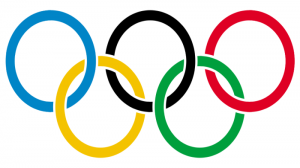First published by RT Op-Edge.
We, the citizens of the world, already owe NSA whistleblower Edward Snowden a huge debt of gratitude. Even the limited publication of a few of the documents he disclosed to journalists has to date provoked a political and public debate in countries across the planet — and who knows what other nasties lurk in the cache of documents, yet to be exposed?
Thanks to Snowden, millions of people as well as many governments have woken up to the fact that privacy is the vital component of free societies. Without that basic right we are unable to freely read, write, speak, plan and associate without fear of being watched, our every thought and utterance stored up to be potentially used against us at some nebulous future date. Such panoptic global surveillance leads inevitably to self-censorship and is corrosive to our basic freedoms, and individual citizens as well as countries are exploring ways to protect themselves and their privacy.
As I and others more eminent have said before, we need free media to have a free society.
But even if we can defend these free channels of communication, what if the very information we wish to ingest and communicate is no longer deemed to be free? What if we become criminalised purely for sharing such un-free information?
The global military security complex may be brutal, but it is not stupid. These corporatist elites, as I prefer to think of them, have seen the new medium of the internet as a threat to their profits and power since its inception. Which is why they have been fighting a desperate rearguard action to apply US patent and copyright laws globally.
 They began by going after music sharing sites such as Napster and imposing grotesque legal penalties on those trying to download a few songs they liked for free, then trying to build national firewalls to deny whole countries access to file sharing sites such as The Pirate Bay and persecuting its co-founder Anakata, mercifully failing to extradite Richard O’Dwyer from the UK to the US on trumped up charges for his signposting site to free media, and culminating in the take down of Megaupload and the illegal FBI attack against Kim Dotcom’s home in New Zealand last year.
They began by going after music sharing sites such as Napster and imposing grotesque legal penalties on those trying to download a few songs they liked for free, then trying to build national firewalls to deny whole countries access to file sharing sites such as The Pirate Bay and persecuting its co-founder Anakata, mercifully failing to extradite Richard O’Dwyer from the UK to the US on trumped up charges for his signposting site to free media, and culminating in the take down of Megaupload and the illegal FBI attack against Kim Dotcom’s home in New Zealand last year.
But for all these high-profile cases of attempted deterrence, more and more people are sharing information, culture, and research for free on the internet. Using peer to peer technologies like Bittorrent and anonymising tools like Tor they are hard to detect, which is why the corporatist lobbyists demand the surveillance state develop ever more intrusive ways of detecting them, including the possibility of deep packet inspection. And of course once such invasive technologies are available, we all know that they will not only be used to stop “piracy” but will also be used against the people of the world by the military surveillance complex too.
But that is still not enough for the corporatists. Largely US-based, they are now trying to flex their political muscle globally. First the US claims that any site ending with a tier one US domain name (.com, .org, .net and .info) comes under US law — anywhere in the world — and can be taken down without warning or redress by a diktat from the US government.
More egregiously still, the US corporatists have been trying to impose their legal dominion globally via a series of secret regional trade agreements: ACTA, TTIP/TAFTA, SOPA, and now in the recently Wikileaked details of the Trans-Pacific Partnership (TPP) targeting the countries around the Pacific rim.
These agreements, written by corporate lobbyists, are so secret that the democratic representatives of sovereign countries are not even allowed to read the contents or debate the terms — they are just told to sign on the dotted line, effectively rubber-stamping legislation that is antithetical to the vast majority their citizens’ interests, which gives greater sovereign powers to the interests of the corporations than it does to nation states, and which will criminalise and directly harm the people of the world in the interests of the few.
One of the proposals is that multinational corporations can sue national governments for future lost profits based on patents not granted or environmental restrictions. This is nothing short of full-on corporatism where international law and global treaties serve a handful of large corporations to the detriment of national sovereignty, environmental health and even human life.
For by protecting “intellectual property” (IP), we are not just talking about the creative endeavours of artists. One does not need to be a lawyer to see the fundamental problematic assumptions in the goals as defined in the leaked document:
Enhance the role of intellectual property in promoting economic and social development, particularly in relation to the new digital economy, technological innovation, the transfer and dissemination of technology and trade;
This statement assumes that IP, a made-up term that confuses three very different areas of law, is by definition beneficial to society as a whole. No evidence for these claimed benefits is provided anywhere. As with “what-is-good-for-General-Motors-is-good-for-America” and the theory of ”trickle down” economics, the benefits are simply assumed and alternative models actively and wilfully ignored. The idea that most societies on the planet might vastly benefit from a relaxation of patent laws or the length of copyright is not even up for debate. This despite the fact that there is plenty of research pointing in that direction.
These secret proposed treaties will enforce patents that put the cost of basic pharmaceuticals beyond the reach of billions; that privatise and patent basic plants and food; and that prevent the sharing of cutting edge academic research, despite the fact that this is usually produced by publicly funded academics at our publicly funded universities.
The price, even today, of trying to liberate research for the public good can be high, as Aaron Swartz found out earlier this year. After trying to share research information from MIT, he faced a witch hunt and decades in prison. Instead he chose to take his own life at the age of 26. How much worse will it be if TPP et al are ratified?
It is thanks to the high-tech publisher, Wikileaks, that we know the sheer scale of the recent TPP débacle. It is also heartening to see so many Pacific rim countries opposing the overweening demands of the USA. Australia alone seems supportive — but then regionally it benefits most from its membership of the “Five Eyes” spy programme with America.
The intellectual property wars are the flip side of the global surveillance network that Snowden disclosed — it is a classic pincer movement.
 As well as watching everything we communicate, the corporatists are also trying to control exactly what information we are legally able to communicate, and using this control as justification for yet more intrusive spying. It’s the perfect self-perpetuating cycle.
As well as watching everything we communicate, the corporatists are also trying to control exactly what information we are legally able to communicate, and using this control as justification for yet more intrusive spying. It’s the perfect self-perpetuating cycle.
By curtailing the powers of the spy agencies, we could restore the internet to its original functionality and openness while maintaining the right to privacy and free speech — but maintaining a 20th century copyright/IP model at the same time is impossible. Or we could give up our privacy and other civil rights to allow specific protected industries to carry on coining it in. A last option would be to switch off the internet. But that is not realistic: modern countries could not survive a day without the internet, any more than they could function without electricity.
As a society we’re going through the painful realisation that we can only have two out of the three options. Different corporatist interest groups would no doubt make different choices but, along with the vast majority of the people, I opt for the internet and privacy as both a free channel for communication and the free transfer of useful information.
Like any social change (the abolition of slavery, universal suffrage), this is also accompanied by heated arguments, legal threats and repression, and lobbyist propaganda. But historically all this sound and fury will signify.… precisely nothing. Surely at some point basic civil rights will make a comeback, upheld by the legislature and protected by law enforcement.
The choice is simple: internet, privacy, copyright. We can only choose two, and I know which I choose.




